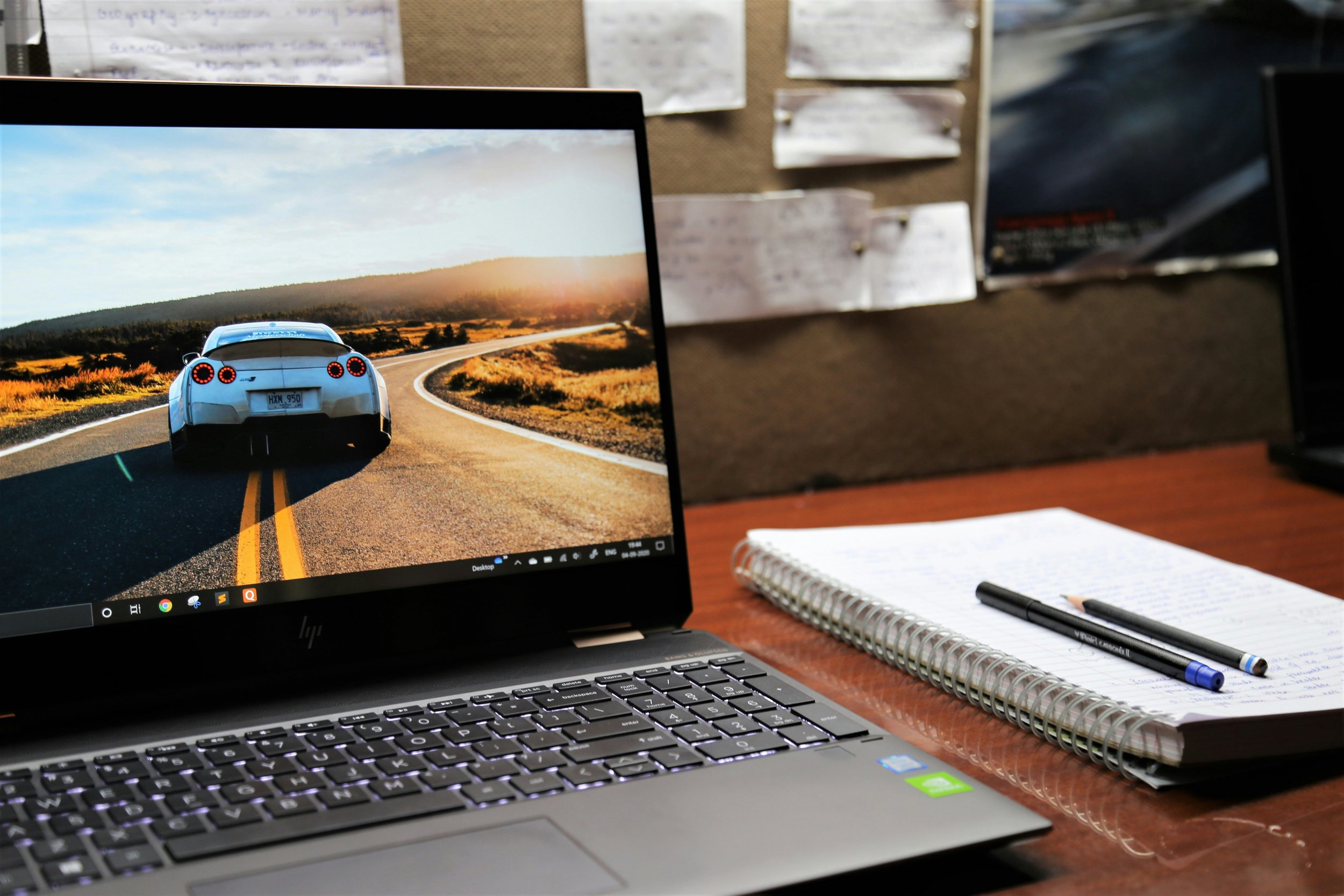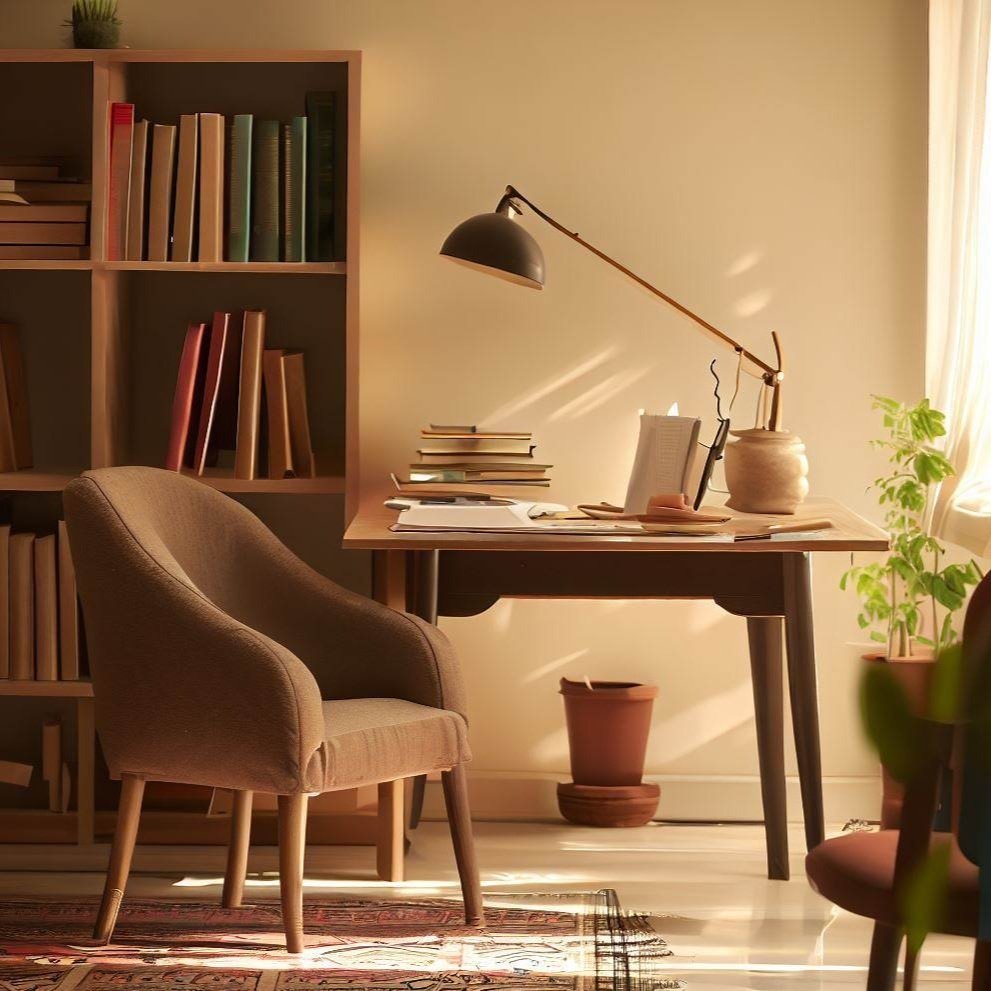Creating a Productive Study Environment with Smart Design Choices
Create a productive study environment with smart design choices. Discover tips and ideas to optimize your space for better focus, efficiency, and comfort.
Designing a room that enhances focus and encourages study is of utmost importance. If you are a student and looking to architect an ideal space for your research or a parent who is looking to create the most conducive study nook for a budding scholar in your family, a thoughtful approach to designing the space can make the task easier and result in a greater sense of motivation and efficiency. In this article, we will explore some of these design options and offer suggestions to make your study space vibrant and creative with practical and intelligent design solutions that allow for deep focus and productive periods.
Choose the Right Location
Choosing the right location is critical to setting up a solid study environment. The less distracting the spot, the more engaged you can be with your study activity. Four essential rules to selecting the perfect study location are:
Pick an area of low traffic: Go to a room or part of an open-plan room that is less well-trodden and, therefore, less likely to be interrupted.
Seek quiet: Noise is a major time-waster, so try to find the most peaceful part of your house.
Use room dividers: A decent study set-up only involves sharing space with some things. Room dividers can create a more defined and secluded home study when you have to share with the rest of the home.
Noise-canceling headphones: Though not necessarily stylish, they help block out ambient noise.
But if you take the time to identify and prepare these elements, you can significantly improve the “learner ecology” of the space.
Optimize Lighting
Lighting is critical to helping maintain your focus and prevent eye strain, and – as far as possible – should be natural. Natural light is soft and can boost your mood and energy levels, so place your desk as close to a window as possible to make the most of it. But as not everyone is blessed with plenty of natural light, you need good general and task lighting. Use a combination of an overhead general light and task light (e.g., desk lamp) for plenty of adjustable lighting at different times of day and for other tasks.
Invest in Ergonomic Furniture
Comfort also makes you study for longer. If you want to invest in your furniture, ensure it’s ergonomic. Not only will your body feel pampered and soothed, but you’ll also treat yourself to better posture and avoid strain or injury. Get an ergonomic chair that supports your spine and a desk at the correct height. Your computer screen must be roughly eye level, and your feet should be flat on the floor. This way, you’ll avoid extra strain on your neck, back, and eyes, and your study session will be even more effective and longer-lasting.
If designing your study space is time-consuming and you have a lot of assignments to complete, there’s a great solution. Using the dissertation writing service by UKWritings will enable you to dedicate your precious time to organizing a comfortable room for learning without compromising your academic performance. By streamlining your responsibilities, you can ensure your study space and schoolwork receive the attention they deserve.
Enhancing Focus Through Organization
Organizing to focus on learning is more than putting things away; it is a strategic approach to setting up a study space that is less distracting and less cluttered so that one can pay attention, be on task, and learn more. If students have a place for folders, papers, books, and supplies, they can focus on looking at, reading, writing about, or displaying the things there and less on the clutter.
The Impact of Clutter on Mental Clarity
It is difficult for your mind to concentrate in a messy environment. Can you focus on studying if your study table contains books, notes, and other stuff? Would it be easier to keep the clutter away and maintain an organized place to study?
Essentials for Your Desk
First and foremost, keep only essential items on your desk. Having non-essential items around can distract you from studying efficiently.
Optimal Use of Storage
Books, papers, and stationery should be stored on shelves, filing cabinets, or drawers whenever possible so that they are easy to find and your tidy study makes the most of your time.
Creating a Conducive Study Environment
A tidy study space promotes the switch between the environment and the study mood while decreasing the stress caused by untidiness, thus facilitating learning. You can complement your study environment by using reliable writing platforms. Follow the link to learn more about the UK's best Ph.D. and dissertation writing services. It helps learners balance their workload while maximizing the benefits of a well-organized study space.
Personalize Your Space
If you want to make your study area yours, you should make it more appealing so that you can study comfortably and with some motivation. Here is how to achieve that by carefully adding decorations to make your room more productive and stimulating.
All these items could aid your study space. Pick what feels right in terms of your style and needs. Ensure that everything you do is there for a reason, to help maintain attention and comfort. You should come away having transformed your study space into a finely tuned, personalized study corner.
Design Your Way to Success
If you study in the right setting, you’ll be more productive and focused, significantly boosting your studying. You can create a study space that matches your functional and psychological needs by making thoughtful design choices. And remember, it’s your space, so make it personal. Adapt these tips to what works for you, and the proper study environment can make achieving your educational goals much more accessible. While you might not be able to change everything about your study space, if you can design your study environment to match your needs, you’ll be on your way to making study sessions easier when you define your study space, work with the features you can’t change, and figure out what small changes you can adapt within your room to make study more accessible.



